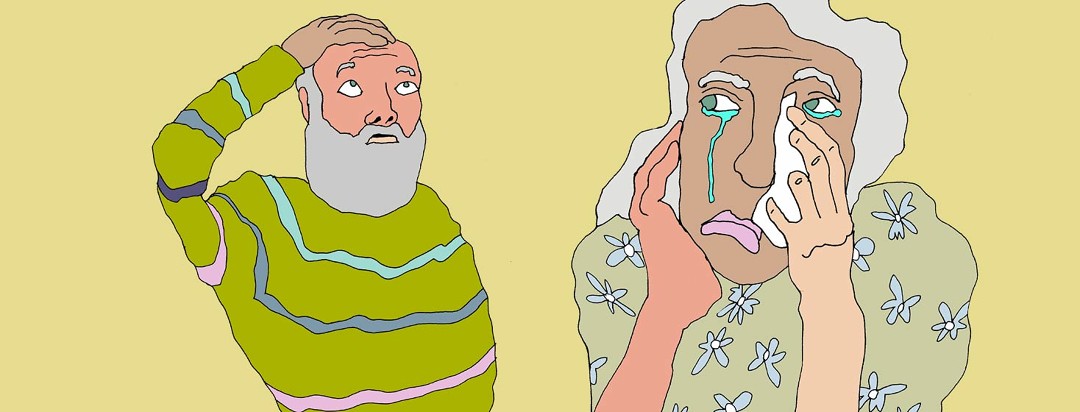Grieving the "Loss" of a Loved One with Alzheimer’s
Alzheimer's is a disease that affects the entire family. It is a chronic, progressive neurological condition characterized by problems with memory, thinking, and behavior. It is a disease that accounts for 60 to 80 percent of all cases of dementia.1
Alzheimer's affects people in different ways. There are three general stages — mild (early stage), moderate (middle-stage), and severe (late-stage).2
Personality and ability
As a person passes through each stage, they experience changes in personality and ability, and over time may lose their capacity to recognize or communicate with friends or family members. This can cause distress all around.
While many people think of grief occurring after death, with a deteriorating condition like Alzheimer's grieving the loss of a loved one can take place throughout all stages of the disease.3-5
Caregiving and Alzheimer's
It can create challenges in relationships as a relative's role changes to that of a caregiver. Feelings of grief and loss are commonly experienced along the continuum until bereavement after the actual death.6
Caring for someone with Alzheimer's can leave a void in your life when the personality of the person you loved is simply gone.3
A diagnosis of Alzheimer's takes time to accept that it will be life-changing for the family.
Normal feelings through Alzheimer's progression
Changes in the brain due to Alzheimer's effect a person's physical and mental abilities, interpersonal relationships, and future plans.5
Changes that take place over time affect communications and the general tasks of daily living.4
It is normal to feel grief as the person's dementia progresses and your relationship with them changes. You may grieve for the losses that you both go through and for the unknowns ahead. Worry, anxiety, and resentment are common. These are normal feelings that can at times be overwhelming.
As dementia progresses, there are shifts in relationships that often go from partnerships to caregivers. People who develop Alzheimer's become dependent on support which can be a change that is very difficult to adjust to.
It is helpful to remember that the person with dementia can also experience these feelings as their abilities change and they adjust to their diagnosis.4
Ambiguous loss
Ambiguous loss can be the loss of your relationship, even though your loved one is still alive, likely even living at home. When Alzheimer's has caused the person's personality to change or disappear it may result in unresolved feelings and strong emotions.5
Grief
Grief can be experienced throughout the process of adjusting; emotionally, mentally, physically, and spiritually.
Grief can come out of nowhere, sometimes called "grief surges". It can be overwhelming and for some, even frightening. When caring for someone with Alzheimer's, grief can be a recurring feeling.2
Isolation and loneliness
Because people can live many years with Alzheimer's, as the condition changes feelings of loss can be experienced over and over again. It is not uncommon to mourn the loss of your old relationship.
The changes can affect intimacy, shared activities, companionship, and the ability to make future plans resulting in feelings of isolation and loneliness.
The changes can affect intimacy, shared activities, companionship, and the ability to make future plans. They are disruptions that impact families leading to changes that may take time to adjust to.4
Relief for caregivers
Caregivers often find themselves overwhelmed, trying to manage all aspects of their lives, as well as the care of their loved ones. Caregivers need to take care of themselves too, staying involved in activities, work, and social life.

Join the conversation